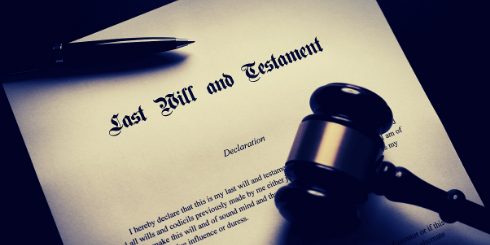Five real-life examples totalling almost $1 million.
Worrells has written plenty of articles about after-acquired property in bankruptcy and more generally, the risk to inheritances. So, people may ask why we’re writing another article…
Well, it’s being written as a reminder and a warning to those considering bankruptcy, or have a client considering bankruptcy, where there’s a chance that they or their client may receive an inheritance (otherwise known as a bequest).
This reminder/warning may sound like “old news”, but it’s evidently necessary as our little office in Central Queensland has had a spate of bankrupts receive an inheritance during their bankruptcy despite being careful to advise them of the potential risks associated. In the last 12 months or so, our office has administered bankruptcies where relatives unfortunately passed away, which enabled the following recoveries:
- An uncle that never changed his Will despite the bankrupt telling him to—$259,000 recovered and we’re expecting a further $100,000.
- A mother that didn’t have capacity to change her Will—$100,000 recovered.
- A brother that died intestate (i.e. no Will) without any children or a partner—$97,000 recovered.
- A mother who didn’t know about the bankruptcy because her daughter was too scared to tell her—expecting to recover $120,000 in the next month.
- A grandmother whose Will we weren’t aware of—recovered $55,000 and we’re expecting a further $170,000 in the next six months.
The concept of after-acquired property is set out in section 58 of the Bankruptcy Act 1966 and essentially provides that any assets that devolve upon a bankrupt during bankruptcy (i.e. the bankrupt becomes entitled to during bankruptcy) will vest in the bankruptcy trustee. The two best known types of property that vests as after-acquired property are:
- Prize winnings – e.g. lotto.
- Inherences from deceased estates.
The case law suggests that a bankrupt and/or their bankruptcy trustee does not necessarily obtain a proprietary interest in the deceased estate’s assets when the relevant person passes. However, the courts have well established that upon the relevant person’s passing the Will’s beneficiaries become entitled to have the deceased estate administered in accordance with the Will and receive the corresponding distribution. It’s this entitlement/right that is the after-acquired property that vests in a bankruptcy trustee—see Re Pevsner; ex parte Trustee in Bankruptcy [1983] FCA 119; (1983) 68 FLR 254 and Official Receiver in Bankruptcy -v- Schultz [1990] HCA 45
After-acquired property disclosed during bankruptcy must be ‘dealt with’ within six years of the bankrupt being discharged from their bankruptcy. Taking the standard three-year bankruptcy term, this means that the bankruptcy trustee has the right to realise that after-acquired property for at least nine years. Extensions can apply in certain circumstances—and there’s no limit on how many extensions a bankruptcy trustee can apply for.

It's important to note that assets held in a discretionary trust, where a bankrupt is a beneficiary under the trust, do not form part of bankrupt estate unless a distribution is made to the bankrupt during the bankruptcy period. Specifically, in the case of Fordyce v Ryan & Anor; Fordyce v Quinn & Anor [2016] QSC 307, Jackson J preferred the view in the long-established case of Dwyer v Ross (1992) 34 FCR 463:
“… [W]here the interest in the trust is a mere discretionary interest, the right to be considered for the purposes of a distribution, it is difficult to see that the right to enforce the due administration of the trust can be property which passes to the trustee in bankruptcy.
The interest in the trust would seem to be a personal right which remains with the bankrupt. Of course, if a distribution of money or property is made to the bankrupt during the period of the bankruptcy, the trustee will be entitled to it as after-acquired property.”
Now, I appreciate that for some of the real-life examples above, there wasn’t much that would have prevented the inheritance coming to the bankrupt estate. But it’s important to remember that it’s a person’s right to leave their assets to whoever they like and if they wish to change their Will such that the bankrupt, or soon to be bankrupt, is no longer a beneficiary then there’s not much a bankruptcy trustee can do about it.
For those wanting to prevent the “family fortune” falling into the bankruptcy trustee’s hands, the options include:
- Amend Wills to exclude the bankrupt for, at least, the standard bankruptcy period (three years). Once the bankrupt is discharged from their bankruptcy then those Wills can be changed again to include the bankrupt receiving a benefit from the deceased estate.
- Amend Wills to leave the assets to a discretionary testamentary trust whereby the bankrupt can be a beneficiary but it’s at the trustee’s (of the testamentary trust) discretion whether to distribute anything to the bankrupt during the bankruptcy period.
Remember, if a person dies and one of the beneficiaries under the Will is bankrupt at that time, the bankrupt beneficiary’s inheritance is after-acquired property that vests in their bankruptcy trustee. The inheritance is not protected and would be used to satisfy the beneficiary’s creditors. Worrells has assisted thousands of people for over 47 years in personal insolvency matters. We understand the implications of the whole range of personal circumstances and explain what happens and what to expect during a formal insolvency process. Insolvency law doesn’t exist to punish people, it exists to help people move past impossible financial challenges to get a fresh start. Worrells is proud to have more registered bankruptcy trustees than any other private firm in Australia. Contact your local Worrells partner to get credible and helpful advice.
